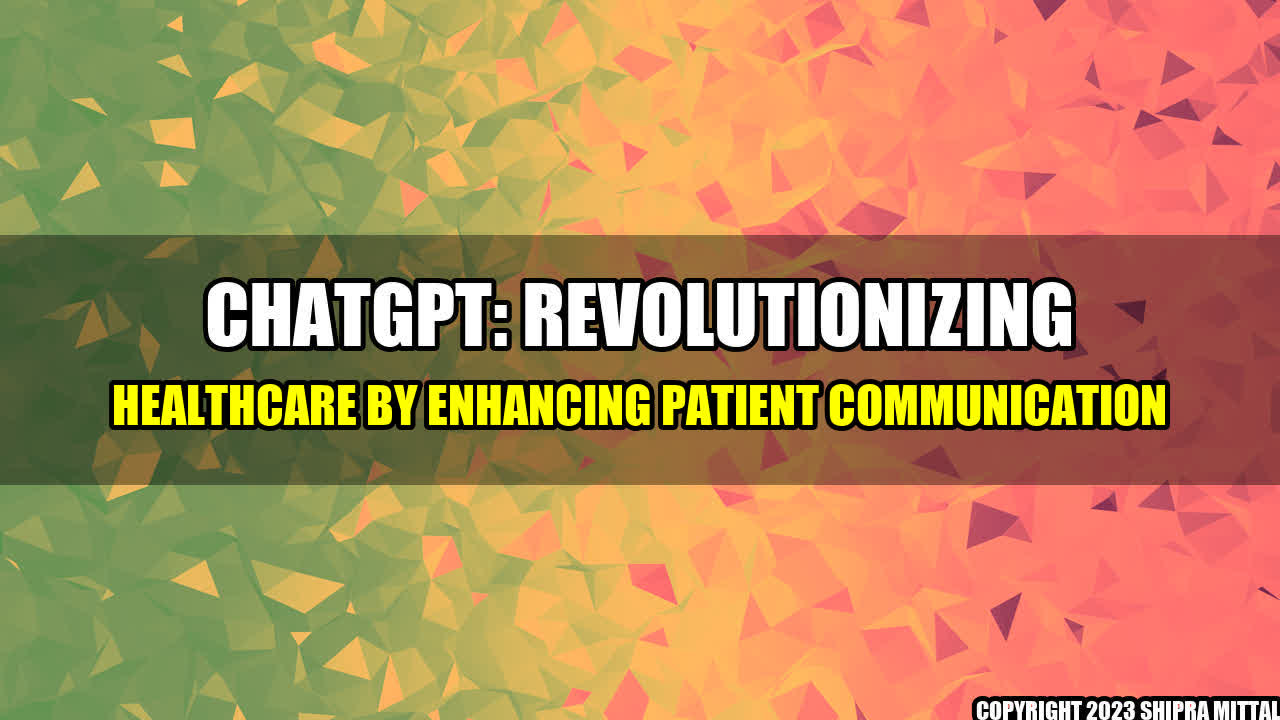
Imagine going to the hospital with a severe illness, yet you feel relief because you can communicate anytime with your healthcare providers and get your questions answered instantly. This is the ultimate goal of four hospitals and health systems that initiated a pilot program to test ChatGPT - a messaging tool powered by Artificial Intelligence (AI). ChatGPT enables a streamlined communication between patients and healthcare providers, which can enhance patient satisfaction, improve healthcare outcomes, and reduce healthcare costs.
One of the participants in the ChatGPT pilot program is UC Davis Health - a leading academic medical center based in Sacramento, California. UC Davis Health aims to utilize ChatGPT to enhance patient experience by providing personalized responses to questions related to medication, appointments, and results. Through ChatGPT, UC Davis Health anticipates that patients would experience shorter wait times, fewer phone calls, and an increased feeling of control over their health.
Another participant in the pilot program is Crozer-Keystone Health System, based in southeastern Pennsylvania. Crozer-Keystone Health System intends to utilize ChatGPT to inform and educate patients on various health topics, in addition to providing quick responses to their questions and concerns. Crozer-Keystone Health System anticipates that ChatGPT would enhance patients' access to healthcare information and help them make informed decisions about their health.
Similarly, the University of Kansas Health System and OSF HealthCare, based in Illinois, are also piloting ChatGPT to enhance their patients' experience and improve healthcare outcomes.
With the increase in telemedicine, ChatGPT is expected to play a significant role in enhancing communication between patients and healthcare providers. ChatGPT eliminates the need for patients to visit healthcare providers physically, especially for tasks such as scheduling appointments and requesting prescription refills.
Furthermore, healthcare systems can use ChatGPT to gather real-time data on patients' experiences and outcomes, which can help them improve the quality of care provided. By utilizing ChatGPT for routine tasks and inquiries, healthcare providers have more time to focus on other critical aspects of patient care.
In conclusion, the pilot program spearheaded by UC Davis Health, Crozer-Keystone Health System, University of Kansas Health System, and OSF HealthCare is demonstrating the potential of ChatGPT in revolutionizing healthcare communication. With the growing need for telemedicine, ChatGPT can play an essential role in enhancing healthcare outcomes. However, there is also a need to ensure that ChatGPT complies with data privacy and security regulations, in addition to training healthcare providers to provide adequate support to patients through ChatGPT.
Reference URLs and Further Reading:
- https://health.ucdavis.edu/health-news/newsroom/uc-davis-health-rolls-out-artificial-intelligence-powered-chatbot-for-patient-communications/2020/12
- https://www.beckershospitalreview.com/digital-transformation/uc-davis-health-launches-ai-powered-chatbot-for-patient-communications.html
- https://www.crozerkeystone.org/news/news-releases/2020/april/crozer-keystone-health-system-launches-chat-bot-to-increase-comf/
- https://www.kansascity.com/news/business/health-care/article259044080.html
- https://www.osfhealthcare.org/blog/osf-careers/partnerships-to-improve-healthcare/
Hashtags: #ChatGPT #telemedicine #healthcarecommunication #AI #patientexperience
SEO Keywords: ChatGPT, telemedicine, healthcare communication, AI, patient experience
Category: Healthcare Technology
Akash Mittal Tech Article
Share on Twitter Share on LinkedIn